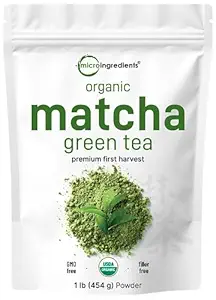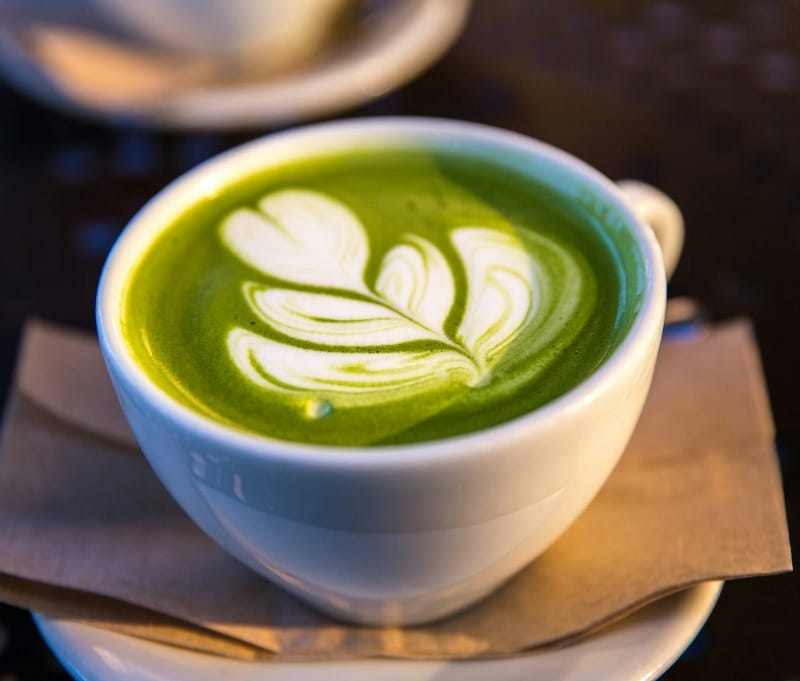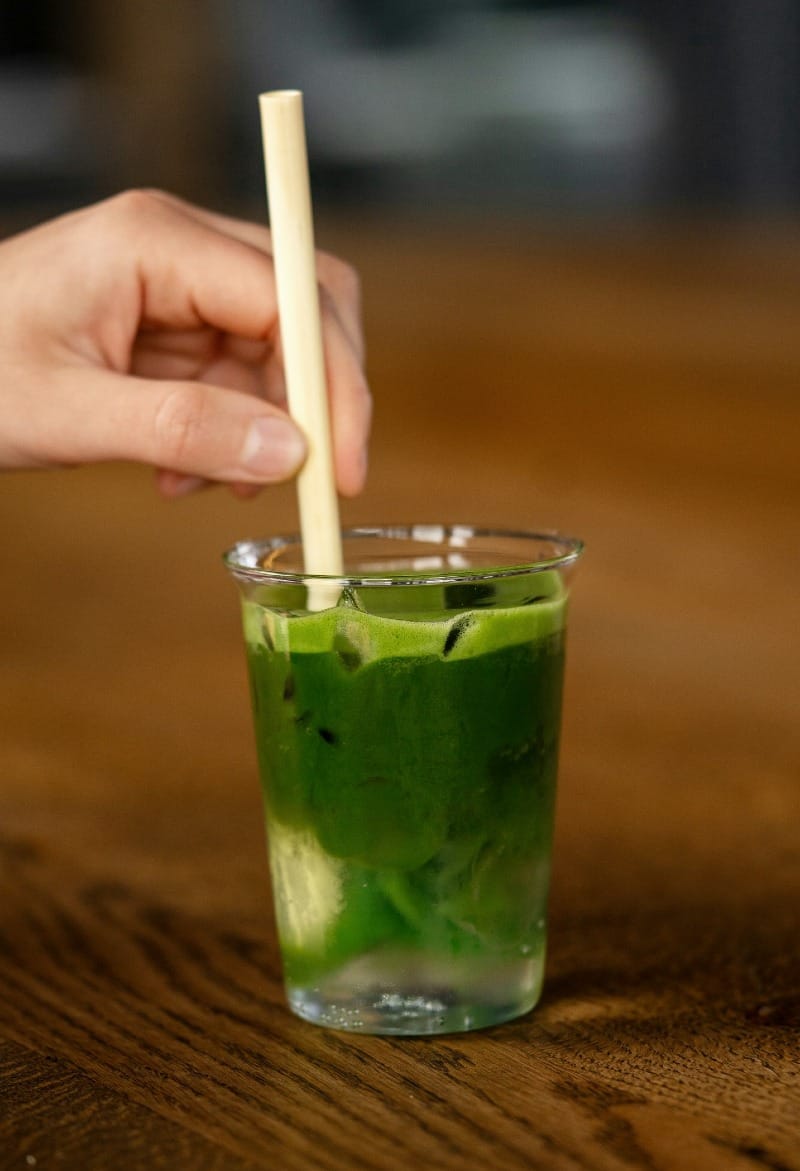Matcha, the vibrant green powdered tea, has been gaining popularity as a healthier alternative to coffee. But how much caffeine does this trendy beverage actually contain? Let's dive into the science behind matcha's energizing effects and compare it to other caffeinated drinks.

Key takeaways:
• Matcha contains 19-44 mg of caffeine per gram
• A typical serving has 38-176 mg of caffeine
• Matcha provides a more sustained energy boost than coffee
What is matcha and how is it different from regular green tea?
Matcha is a type of green tea made by grinding whole tea leaves into a fine powder. Unlike regular green tea where the leaves are steeped and discarded, matcha involves consuming the entire leaf. This unique preparation method results in a more concentrated dose of nutrients and caffeine[2].
The tea plants used to produce matcha are shaded for several weeks before harvesting, which increases chlorophyll content and enhances the tea's vibrant green color. This process also boosts the production of L-theanine, an amino acid that works synergistically with caffeine to provide a calm yet alert state[3].
How much caffeine is in matcha?
The caffeine content of matcha can vary depending on factors like the quality of the tea, serving size, and preparation method. On average, matcha contains 19-44 mg of caffeine per gram[4]. A typical serving of matcha uses 2-4 grams (1/2-1 teaspoon) of powder, resulting in approximately 38-176 mg of caffeine per cup[4].
To put this into perspective:
• A standard 8 oz cup of coffee contains 80-100 mg of caffeine
• A shot of espresso has about 60-75 mg of caffeine
• Regular green tea contains 20-90 mg of caffeine per cup
While the caffeine content of matcha can be comparable to or even higher than coffee, many people report experiencing a different type of energy boost from matcha.
The matcha difference: L-theanine and sustained energy
What sets matcha apart from other caffeinated beverages is its unique combination of caffeine and L-theanine. This amino acid has been shown to promote relaxation without causing drowsiness and can help mitigate some of the jittery side effects often associated with caffeine[3].
The result is a more balanced, sustained energy boost that lasts longer than the quick spike and crash often experienced with coffee. Many matcha drinkers report feeling alert and focused for 3-6 hours after consumption, compared to the shorter 1-3 hour effects of coffee[4].

Health benefits beyond the caffeine boost
Matcha isn't just about the caffeine. This green tea powder is packed with antioxidants, particularly catechins like epigallocatechin gallate (EGCG). These compounds have been linked to various health benefits, including:
• Improved cognitive function and memory[2]
• Enhanced fat oxidation and metabolism[3]
• Potential cancer-fighting properties[2]
• Cardiovascular health support[5]
A study published in the journal Nutrients found that matcha consumption was associated with improvements in attention, reaction time, and memory in both young adults and the elderly[2].
How to incorporate matcha into your routine
If you're looking to swap your morning coffee for matcha, here are some tips to get started:
- Start with high-quality matcha powder from reputable sources.
- Begin with 1/2 teaspoon (about 1 gram) and gradually increase to find your ideal serving size.
- Whisk the powder with hot (not boiling) water until frothy.
- Experiment with matcha lattes, smoothies, or baked goods for variety.
Remember that individual caffeine sensitivity varies, so pay attention to how your body responds and adjust accordingly.
Conclusion
Matcha offers a unique alternative to traditional caffeinated beverages, providing a sustained energy boost along with numerous health benefits. With 38-176 mg of caffeine per serving, matcha can be a potent source of caffeine, but its effects are often described as more balanced and longer-lasting than coffee.
As with any dietary change, it's essential to listen to your body and consume matcha in moderation. If you have any concerns about caffeine intake or are sensitive to its effects, consult with a healthcare professional before making significant changes to your diet.
Ready to explore the world of matcha? Try incorporating this green powerhouse into your routine and experience the difference for yourself. Share your matcha experiences or questions in the comments below!
References:
Citations:
[1] https://www.healthifyme.com/us/
[2] https://www.ncbi.nlm.nih.gov/pmc/articles/PMC9792400/
[3] https://www.ncbi.nlm.nih.gov/pmc/articles/PMC7796401/
[4] https://matcha.com/blogs/news/matcha-caffeine
[5] https://www.hsph.harvard.edu/news/hsph-in-the-news/matcha-brain-heart-gut-health/
[7] https://www.healthline.com/nutrition/does-matcha-have-caffeine















Member discussion